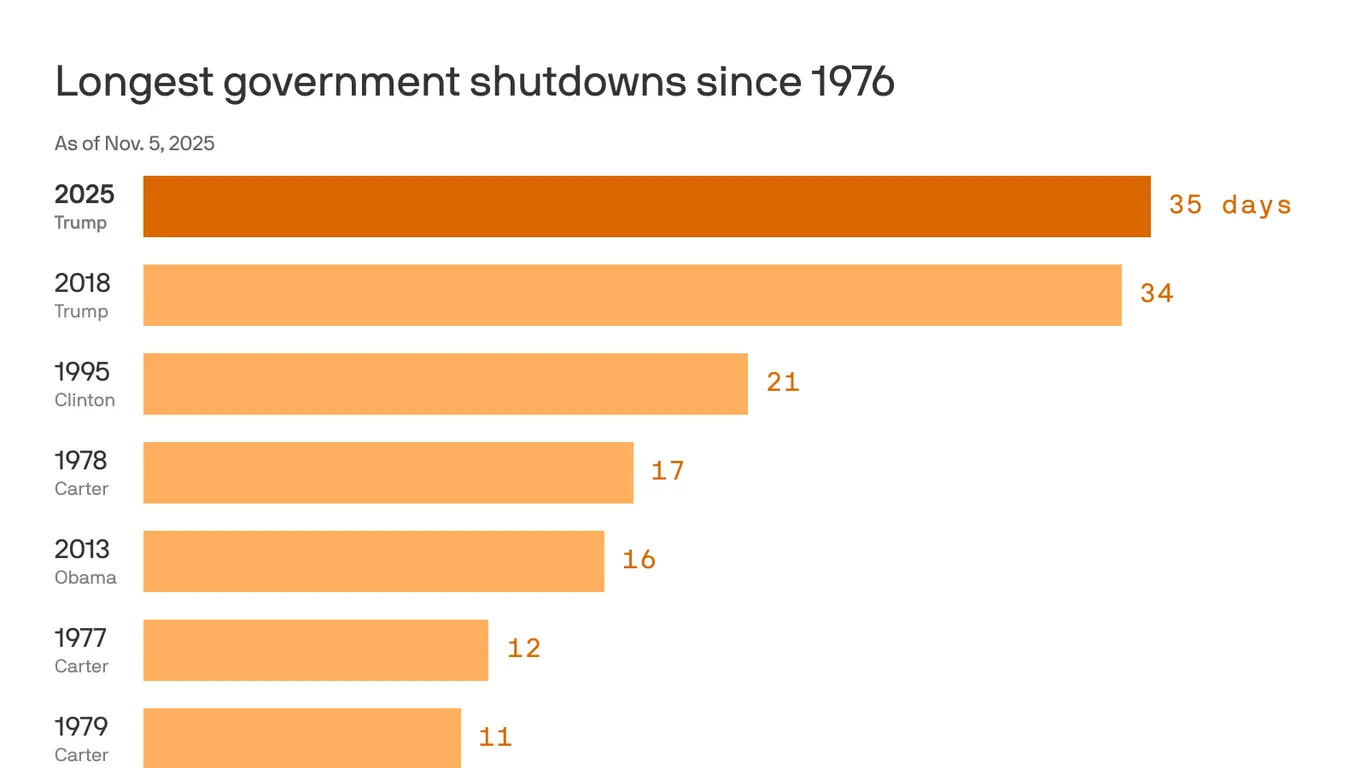Copyright Hartford Courant

Gov. Ned Lamont released the call for a special session of the Connecticut General Assembly Friday afternoon after revealing a re-worked version of a housing bill that he spent months negotiating with lawmakers and municipal leaders. In addition to taking a second bite at the apple of housing reform, Connecticut lawmakers will take up immigration, food assistance, a hospital acquisition and other issues when they convene in Hartford next week for a 2-day session. Among the most pressing issues is the ongoing federal government shutdown that threatens to cut off funding for food stamps, energy assistance and other programs that send federal money flowing into Connecticut. In addition, Democrats want to pass new protections for immigrants that would prevent personal data from being shared by state agencies with U.S. Immigration and Customs Enforcement. The session agenda also includes a bonding package that would provide funding to expand the UConn Health system, as well as a bill to replenish the state’s firefighter cancer relief fund with a new surcharge on monthly phone bills. House Speaker Matt Ritter, D-Hartford, said lawmakers will take up those items through several separate bills rather than combining them into one omnibus measure. The special session will take place over two days to pass the bills, with the House meeting on Nov. 12 followed by the Senate on Nov. 13. While Republicans are expected to oppose some items on the call, Democrats control both chambers and are expected to send the entire slate of bills to Lamont’s desk. “It’s going to be a long day, but it should be relatively smooth,” Ritter said. Budget reserves In order to prepare for the loss of federal funding due to the ongoing government shutdown — which became the longest in U.S. history this week — or other cuts that may emerge from the Trump administration, Lamont and lawmakers have agreed to direct another $500 million into the state’s rainy day fund. That fund is currently full, at it’s statutory limit of $4.3 billion or 18% of the general fund. The special session legislation will temporarily raise that limit to $4.8 billion through the end of the fiscal year on June 30, 2026. Lamont will have broad discretion over how to spend the additional $500 million, Ritter said, as long as it is related to the loss of federal revenues. In particular, lawmakers in both parties have been pushing Lamont to use the state’s ample budget reserves to prevent the loss of any federal benefits through programs such as food stamps or the Low-Income Home Energy Assistance Program, which provides winter heating assistance. “Generally I am supportive of doing something to mitigate the impact from the government shutdown, including the loss of SNAP and LIHEAP,” said House Minority Leader Vincent Candelora, R-North Branford. Speaking to reporters on Friday, Lamont said that he had already authorized the state Department of Social Services to fully fund SNAP benefits through the end of this month by using up to $72 million from the state’s rainy day fund. The announcement came after the Trump administration sought permission from a federal appeals court to only partially fund the program, then appeared to have reversed course. Roughly 360,000 Connecticut residents rely on SNAP benefits to purchase food. “This herky-jerky back and forth is driving people crazy,” Lamont said. “Let’s take care of people. We can afford to do it.” Immigration In response to a months-long push by Democrats and local activists, the special session will also include legislation prohibiting immigration officers from wearing masks while making arrests, and limiting when state agencies such as the Department of Motor Vehicles can share residents’ data with federal officials. In addition, the bill is will codify a policy put in place by the Connecticut Supreme Court earlier this year preventing federal agents from making immigration related arrests within state courthouses without a warrant. Those changes are aimed at bolstering an existing state law, the Trust Act, which generally prohibits local and state law enforcement from arresting someone solely on the basis of a request from ICE to do so. There are some exceptions, such as when ICE presents a judicial warrant, if the person is on a terrorist watch list or if they have been convicted or pleaded guilty to certain felony crimes. The Trust Act was been the subject of intense debate in the state legislature earlier this year, and changes were eventually passed that expanded the list of crimes for which police officers could hand someone over to ICE and opened an avenue for people to sue cities and towns that cooperated with ICE in violation of state law. But in the wake of high profile detentions by ICE, including enforcement activities in the courthouse in Stamford, in downtown Danbury and at a car wash in Newington, advocates have been calling on state lawmakers to further limit federal officials’ ability to access information or enter certain facilities. In September, 92 organizations wrote a letter to the governor asking that the state limit the amount of personal data shared between state agencies and the federal government, prohibit ICE from making arrests at courthouses and continue to offer state health insurance to unauthorized migrant children and pregnant women. “Now is the time for our elected officials to meet this moment with the urgency it requires,” the letter said. “This moment makes it clear – Connecticut must not be complicit in the federal government’s abusive immigration enforcement tactics or its creeping authoritarianism.” The latest bill is expected to attract pushback from Republicans, who have accused Democrats in Connecticut of hindering federal law enforcement operations. “By not allowing arrests in courts, and not cooperating with the federal agencies, ICE has become sort of a lone ranger,” Candelora said. Hospital money The legislature will vote to authorize a bonding package to fund the expansion of UConn Health. The planned expansion includes the purchase of Waterbury Hospital from bankrupt hospital operator Prospect Medical Holdings, as well as the acquisition of two other private, independent hospitals that are also struggling: Bristol Hospital and Day Kimball Hospital in Putnam. If approved by the legislature, the state could borrow as much as $390 million to invest in the hospitals over a five-year period, according to a presentation during an Oct. 3 meeting of the University of Connecticut’s Board of Trustees and the UConn Health Board of Directors. The debt would be added to the “UConn 2000” bonding package and go towards the acquisition of Waterbury Hospital and capital improvements projects at all three facilities. The financing to purchase Bristol and Day Kimball Hospitals would be handled separately, State Comptroller Sean Scanlon told The Connecticut Mirror last month. He said Waterbury Hospital, in particular, would need a major influx of capital funding to bring it up to the state’s standards for medical facilities. On Friday, UConn Health submitted a $13 million offer to acquire Waterbury, including $4 million for the operating assets and $9 million for the real estate. The state will also assume a limited set of the hospital’s liabilities, bringing the deal’s total value up to $35 million, according to the terms laid out in court documents. During a press conference, Lamont highlighted the effort it took to find a buyer for the struggling hospital. “We had to work really hard after what Prospect did to that hospital. We’ve got a strong bidder,” Lamont said. “I want people to know Waterbury Hospital is going to thrive under new leadership.” Firefighters and other items The session will also include an update to recently-passed legislation imposing a 5-cent fee on monthly phone bills to provide a steady revenue stream to the Connecticut firefighters cancer relief account. The account provides wage replacement benefits for both paid and volunteer firefighters diagnosed with cancer. While the fee was originally approved by lawmakers as part of budget legislation earlier this year, the language included an opt-out provision that has been difficult for the phone companies to implement, according to Todd Murphy, a spokesman for the House Democrats. As a result, lawmakers are planning to remove the opt-out provision and delay the implementation of the fee until a later date, Murphy said. Republicans had voiced opposition to the fee when it was first proposed, and some may do so again when it is brought back up in the special session. The Senate Minority Leader, Stephen Harding, R-Brookfield, called the firefighters fund a “noble cause,” but suggested the roughly $3 million that is expected to be collected from the fees could come from other areas. “I’d much rather see that in the confines of the state budget than to see it off budget and collected as some kind of fee,” Harding said. Lawmakers will also take up a children’s behavioral health bill that passed with bipartisan support in the House in June, only to die in the Senate. There are also smaller changes having to do with applications for the Temporary Family Assistance program as well as clarifying procedures around the creation of electoral districts. Reporters Keith Phaneuf, Ginny Monk and Sasha Allen contributed to this article. Emilia Otte, Katy Golvala and John Moritz are reporters for the Connecticut Mirror. Copyright 2025 @ CT Mirror (ctmirror.org).



